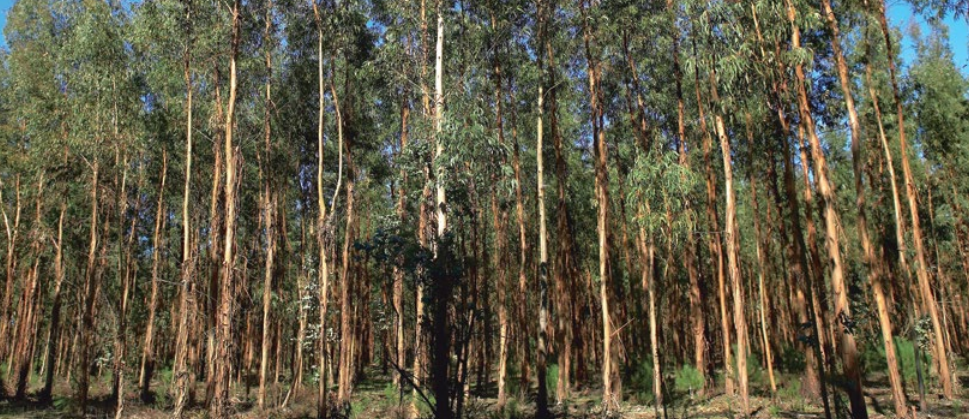gPS researches and shares expertise
Only sustainable and highly professional management can protect woodlands.
01st September 2014
The Portucel Soporcel group is the largest private sector contributor to efforts to reduce forest fire risks in Portugal, investing on average three million euros each year in preventing and helping to fight wildfires.
Only a firm commitment to an integrated prevention and fire-fighting operation, based on highly professional forestry management, has allowed the woodlands under the Group’s management (more than 120,000 hectares) to record a lower rate of damage, both in area burned and value lost, than the average rate for Portuguese forests.

According Tiago Oliveira, in charge of Forestry Protection at gPS, “the approach we have developed to protection involves a balance between investment in prevention and prevention in fire-fighting, seeking to reduce actual losses and lower the exposure of forestry holdings to risk factors”.
Internally, our woodlands are actively managed 365 days a year. In line with the probability of fire and the forestry operations planned for a given region, priority areas are identified each year (and 2014 was no exception) where risks are highest and work carried out to manage forest fuel loads, including pruning, thinning, undergrowth clearance, grass control, removal of forest biomass and controlled burning, over an average of 10,000 hectares a year.
The Group seeks to mobilize the community to adopt more effective practices, having worked in partnership since 2012 with the National Firefighting Academy, on the “Safe Forest” project, designed to raising awareness in rural communities of the need for prevention.In addition, the Group, acting through Afocelca, contributes each summer to special forest fire defence operations (ANPC - National Civil Protection Service).
Beyond its own woodlands, the Group seeks to mobilize communities to adopt more effective practices, and since 2012 has partnered the National Firefighting Academy in the “Safe Forest” project, designed to raise awareness in rural areas of the need for a preventive approach, in particular avoiding the burning of stubble.
This year these efforts involved dozens of information and training sessions in parishes in the municipalities of São Pedro do Sul, Paredes and Rio Maior.

Since 2011, the Group has shown its commitment to scientific research into forest fires by participating in the FIRE-ENGINE project (Flexible Design of Forest Fire Management Systems), as part of the MIT-Portugal programme, in conjunction with the Massachusetts Institute of Technology (MIT), the Instituto Superior de Agronomia (ISA), INESC Porto and the University of Trás -os-Montes and Alto Douro (UTAD).
FIRE-ENGINE has helped to expand and improve the Group’s expertise in these fields and to create the innovation network, including collaboration with the United States Forest Service.
At present, the project is focussed on generating and developing know-how in this area and transferring it successfully to an operational scale.
Changing people’s habits means sharing our know-how and expertise to achieve the common good: improving and protecting our woodlands, which generate economic, environmental and social wealth for Portugal. gPS is determined to remain at the forefront of this process!
Changing people’s habits means sharing our know-how and experience to achieve the common good: improving and protecting our woodlands!
What the experts say
João Claro
University of Porto
“I think the priority is to improve coordination between the different organizations involved, adopting management policies and practices aligned with a broad approach to managing fire risk”
Paulo M. Fernandes
University of Trás-os-Montes and Alto Douro
“Portugal presents a unique combination of factors which propagate fires: a Mediterranean climate, difficult terrain, predominance of vegetation that burns easily and intensely, and a large number of ignitions. Reducing the area burned will have to involve intervention in woodlands, creating fire breaks and reducing the fuel load.”
gPS News (Portucel Soporcel group), july 2014


